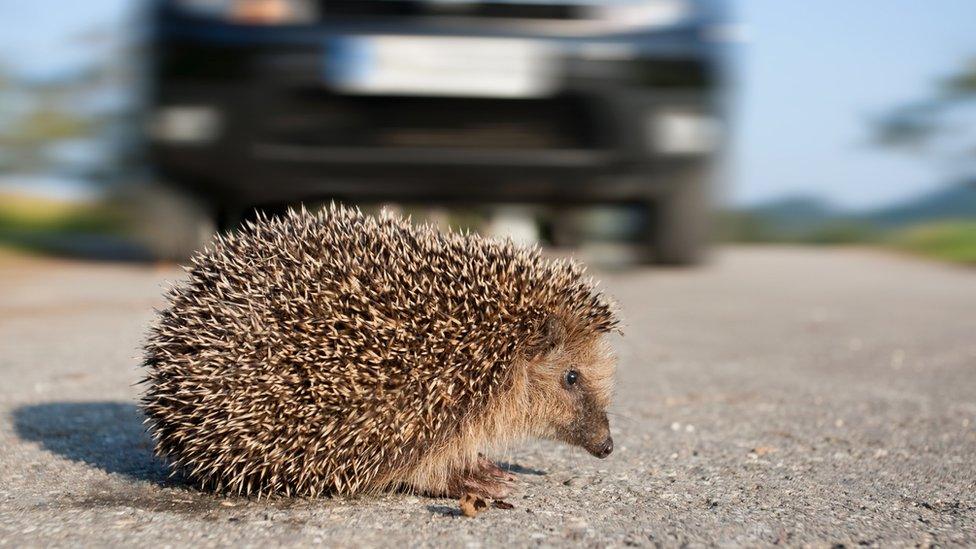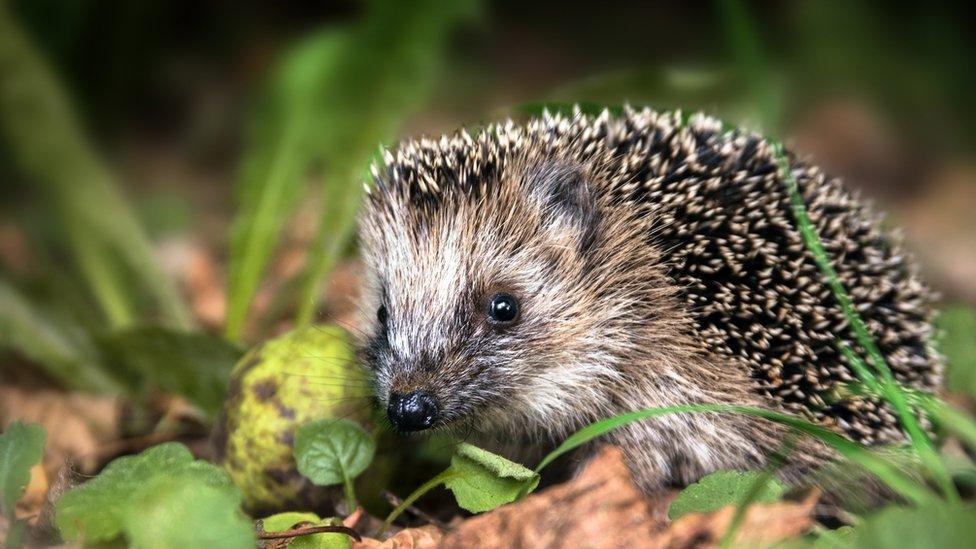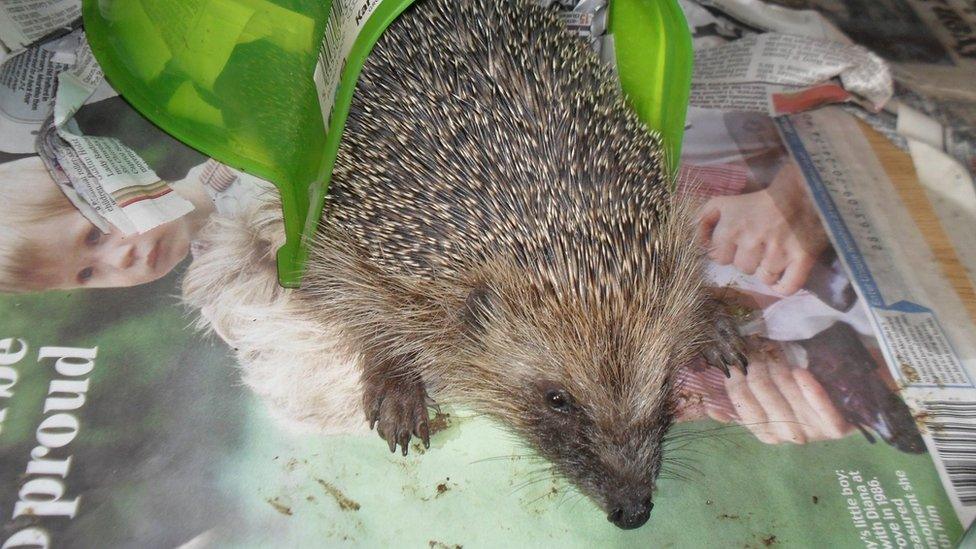Coronavirus: People spotting more 'randy' hedgehogs in gardens
- Published

Research from 2016 estimated about 100,000 hedgehogs were killed on UK roads each year
Amorous hedgehogs have become a more common sight in gardens because of the lockdown, a wildlife expert has said.
Nottinghamshire mammal recorder Michael Walker said people had become more attuned with nature with some sending him videos of "randy" hedgehogs.
Experts say less traffic on roads could also be reducing hedgehog mortality.
The British Hedgehog Preservation Society said there was more awareness of hedgehogs but more people gardening meant more chance of hedgehog injuries.
A study into animal road deaths suggested fewer were being reported compared to April 2019, although this could be down to fewer people being around to see the results.
'Even more huffing'
"Hedgehogs have become extremely active and people are noticing them more in their gardens," said Mr Walker.
"I've had a video sent to me of a male pursuing a female... very noisily.
"When two males are involved, it can cause quite a commotion with even more huffing."
Mr Walker, from Nottinghamshire Wildlife Trust, said he would like people to record their experiences, external, especially if they lived in the city.
Allow X content?
This article contains content provided by X. We ask for your permission before anything is loaded, as they may be using cookies and other technologies. You may want to read X’s cookie policy, external and privacy policy, external before accepting. To view this content choose ‘accept and continue’.

Nottingham Trent University recently announced a study into the effect of traffic on hedgehog populations.
Researcher Lauren Moore said while fieldwork was restricted due to the lockdown, reports from the public suggest there were fewer road kill sightings of all animal species - including hedgehogs - compared to 2019.
She said those submitted to the Project Splatter website, external showed between the end of March and beginning of April more than 140 road kill sightings were recorded, compared to up to 381 for the same period in 2019.
"It could be a result of fewer people on the roads to see and record sightings," she said.
"[However] it is possible that it's due to a lower number of vehicles on roads and that the risk hedgehogs [and other animals] face when crossing a road is greatly reduced."
Ms Moore also said it was possible people were spotting hedgehogs more in their gardens because the animals were coming out earlier as it was quieter due to lockdown.

The Nottingham Trent University team monitor frequency of road crossings, road kill and use of tunnels
Fay Vass, chief executive of the British Hedgehog Preservation Society, said they were seeing an increase in interest around the prickly animal, particularly in the build-up to Hedgehog Awareness Week, external next month.
But she warned that with the lockdown people were spending more time gardening, potentially making gardens less hedgehog-friendly or even injuring the animals.
"People have more time at home so are tidying garden, moving sheds or getting the strimmers out," she said.
"But certainly the phones are very busy with people calling having found them in the garden or looking for advice on what to do."
Sue Smith, who runs 7th Heaven Hedgehog Rescue in Retford, said medical supplies had been prioritised for hospitals during the coronavirus outbreak, meaning vets were having to put pets ahead of wild animals.
Operations on injured hedgehogs cannot currently be undertaken and in some cases they have to be euthanised instead, she added.

A hedgehog at 7th Heaven Hedgehog Rescue

A SIMPLE GUIDE: How do I protect myself?
AVOIDING CONTACT: The rules on self-isolation and exercise
HOPE AND LOSS: Your coronavirus stories
LOOK-UP TOOL: Check cases in your area
VIDEO: The 20-second hand wash

Follow BBC East Midlands on Facebook, external, Twitter, external, or Instagram, external. Send your story ideas to eastmidsnews@bbc.co.uk, external.
- Published6 March 2020
